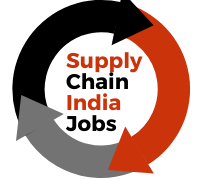.

.
Supply Chain Manager: What does a Supply Chain Manager Do?
.
The Supply Chain Manager is the head of a company’s supply chain. It is responsible for overseeing and ensuring the perfect operation of everything that is part of the internal supply chain of a business: from the supply of raw materials to the storage and transport of half-finished products, to the shipment of products to the customer.
.
The Supply Chain Manager is, therefore, a key figure for the success of a company, a point of contact between the company, suppliers and customers. The purpose of its work is to ensure that purchases meet internal requirements, that production is sufficient to meet customer demand, and that the required products are delivered on time and in the right quantity.
.
What are the tasks of a Supply Chain Manager?
.
The tasks of the supply chain manager are very extensive. First of all, it manages the supply of raw materials: it supervises the purchasing process, maintains relationships with suppliers and controls the arrival of the goods necessary for the operation of the company (interfacing with the purchasing office). It then organizes the passage of products and materials in the various stages of processing, storage and transport of the work in the works to the different departments or plants. It coordinates inventory management and keeps track of all goods’ movements.
.
Once the production chain is finished, it is always the job of the Supply Chain Manager to organize the shipment and transport of goods to reach customers on time and in the required number.
.
Discover Supply Chain Manager jobs
.
The Supply Chain Manager organizes and oversees all of these steps in internal logistics with the goal of controlling performance and improving process efficiency. Part of the work involves collecting and analyzing data through IT tools and management software to identify critical issues and weaknesses in the supply chain. This allows you to identify steps that require improvements, adjust supply chain planning, and propose innovative solutions to optimize the flow of goods between the Production, Logistics and Warehouse departments – and thus ensure high performance (in terms of time, cost and product quality).
.
Supply Chain Manager Skills
.
Depending on the size and organization of the company, the handling of finished materials and products can be carried out by staff and own vehicles or through transport companies. The coordination of transport personnel, the management of fleets of vehicles, and the negotiation of contracts with transport and shipping companies (domestic and international) can also be included in the supply chain manager’s tasks, with the aim of minimizing delivery times and transport costs.
.
Still, the Supply Chain Manager is responsible for managing and optimizing the processes of tracking and documenting the passages of the goods and verifying compliance with regulatory constraints (e.g. the storage of certain materials in stock or related to customs formalities in import/export practices).
.
If there are contingencies and technical difficulties, the supply chain manager is the figure who needs to find quick and effective solutions to ensure business operations.
.
It is mainly the production companies that are looking for Supply Chain Managers to be included: metal engineering, food, textiles, chemical-pharmaceuticals, automotive, electronics, furniture, construction and more. Other job opportunities are in commercial enterprises, retail, GDO and e-commerce.
.
What does the Supply Chain Manager do?
.
A Supply Chain Manager mostly works in office settings, although travel may be required to negotiate contracts with suppliers and customers, or to personally verify warehouses, distribution centres, and manufacturing facilities.
.
What are the working hours of a Supply Chain Manager? Schedules vary depending on business contexts: these are often full-time contracts, and in some cases work shifts can be provided that include evening hours and weekends (e.g. in continuous-cycle processing facilities).
.
Discover new job offers before others!
Sign up now and get the latest job offers for Supply Chain Manager
.
What are the responsibilities of a Supply Chain Manager?
.
The main responsibilities of a Supply Chain Manager are:
- Plan material requirements
- Manage procurement and supplier contacts
- Monitor the movement of goods in stock
- Check inventory and coordinate storage in warehouses
- Plan and organize finished product delivery
- Analyze business data and evaluate performance to optimize freight flows
- Develop an agile and efficient supply chain
.
How to Become a Supply Chain Manager?
Training and Requirements
.
How to become a Supply Chain Manager?
.
The training to become Supply Chain Manager is academic: usually in the job offers a degree in Economics and Management or even Engineering (Management Engineering, Transport and Logistics Engineering) is required.
.
You can complete your training with master’s and courses in supply chain management, with a specific focus on logistics network design, production order scheduling, stock storage and management, warehouse administration, negotiation of relationships with suppliers, transporters and customers.
.
It is also important to train a Supply Chain Manager with IT skills: increasingly, the management and analysis of logistics flows is carried out through computerized management systems, such as Enterprise Resource Planning (ERP) software. In addition, it is important to know transport regulations (national and international) and laws governing activities in warehouses, warehouses and storage areas.
.
Supply Chain Manager Skills
.
The main skills of a Supply Chain Manager are:
.
- Competence in purchasing planning and supply planning
- Warehouse management capacity and internal logistics
- Knowledge of supply chain control models
- Knowledge of inventory management procedures
- Skills in work organization and cost accounting
- Knowledge of the management and organizational systems of a goods warehouse
- Analysis capabilities
- Organizational skills
- Trading capabilities
- Attitude to problem solving and teamwork
.
What are the Supply Chain Manager’s Career options?
.
Supply Chain Manager Career
.
Training is not enough to reach the Supply Chain Manager position: you need to have some experience in the Logistics and Production areas, or in the purchasing office.
.
For example, a Supply Chain Manager’s career can begin with entry-level positions such as purchasing agent, logistics officer, or import/export clerk, and then move to coordination positions as a warehouse manager or purchasing manager, before becoming a Supply Chain Manager.
.
Starting from small and medium-sized companies, you can make a career by going to work for larger and more developed companies, with large and complex supply chains – up to manage the international flows of goods of multinational companies.
.
Supply Chain Manager: What does a Supply Chain Manager Do?
.
Good Reasons to Work As Supply Chain Manager
.
There are many reasons for a career as a Supply Chain Manager. First of all, the supply chain is a key element for many companies, and the role of the Supply Chain Manager is of strategic importance to the commercial success of the business. This means great responsibility but also great satisfaction. The salary reflects the importance of the position, making the supply chain manager’s career very lucrative.
.
In addition, the work of the Supply Chain Manager is undoubtedly stimulating, also for the new challenges faced by experts in supply chain management. On the one hand, globalization opens the borders to a growing import/export market, on the other the technology allows to address logistical problems with new tools and new strategies, or to open and optimize new sales channels through e-commerce.
Supply Chain Manager: What does a Supply Chain Manager Do?
.
.
.
